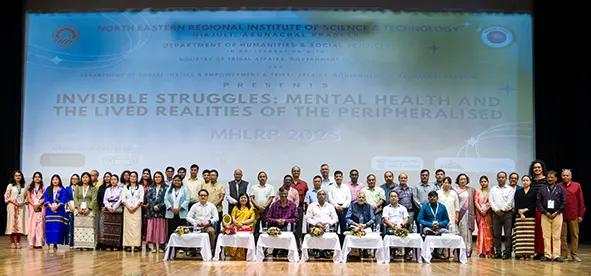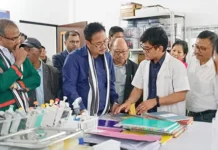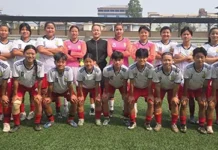NIRJULI, 6 Nov: A two-day international conference, titled ‘Invisible struggles: Mental health and the lived realities of the peripheralized’, commenced at the North Eastern Regional Institute of Science and Technology (NERIST) here on Thursday.
The event is being organised by the humanities and social sciences department of the NERIST, in collaboration with the Union Tribal Affairs Ministry and the State Social Justice and Empowerment and Tribal Affairs Department, and in association with two knowledge partners – Kolkata-based Bridge and Mumbai-based Mariwala Health Initiative.
The event also celebrates the Janjatiya Gaurav Varsh, commemorating the 150th birth anniversary of Birsa Munda.
During the inaugural session, renowned psychologist emeritus Prof Anand Prakash, former head of the psychology department of Delhi University, addressed the “prevailing approach of mental health as an individual aspect that needs to be dismantled.”
He highlighted the importance of deconstructing the idea of ‘normal’ and the collective responsibility of the community to create spaces, bring dialogue, compassion, and social inclusivity regarding mental health.
Gauhati University Psychology HoD Prof Rita Rani Talukdar in her address described the conference as a “gathering of the thoughtful.”
She emphasised the term ‘privilege’ and urged scholars to “take up responsibility to discuss and make a change in society.”
Dr Talukdar shared insights into the tribal people of Assam. She stated, “Mental health is the story of survival and it’s beyond the clinical landscape.” She further said “Mental health is not a privilege but a right.”
United Kingdom-based University of Kent’s Public Policy Research Unit Director Prof Nikhil Sengupta in his address “vouched for the idea of learning and promised to engage more in the plenary discussion,” according to a release.
NERIST Director Prof Narendranath S reflected on the importance of mental health and emphasised student suicide rate. He asked the scholars and teachers to advocate for a society with no boundaries, and to come up with a solution to implement in the institute.
RGU Sociology HoD Bikash Bage, who is also the state nodal officer of the Tribal Research Institute, spoke on the importance of the Janjatiya Gaurav Varsh Pakhwada, which is being celebrated across India from 1 to 15 November.
Assistant Professor Dr Yuma Narah from the HSS department of the NERIST presented an overview of the seminar. She asked scholars to “discuss mental health as a collective responsibility.”
Humanities and Social Science HoD (i/c) Prof Dr Ravi Kumar urged the attendees to have a “collective will to turn empathy into action.”
Two books published by the TRI, titled Mind Matters (Unveiling Mental Health among the Youth of AP) and Sanitation Among The Scheduled Tribes Of Arunachal Pradesh (Status, Awareness Level and Hygienic Practices), were launched during the inaugural session.
These books were funded by the Ministry of Tribal Affairs and published in coordination with the SJETA Department, under the supervision of state nodal officer Dr Bikash Bage.
The seminar’s discussions are structured on the mental health of the peripheralized and marginalised communities, with the aim to work with a multidisciplinary approach, involving psychology, public health, social work, policymaking, and community engagement.
The inaugural session was followed by the first plenary session, delivered by University of Kent’s Dr Trude Sundberg.
Technicalities were deliberated upon in two plenary sessions simultaneously, delivered by Matai Society founder Kumam Davidson Singh and Dr Sengupta.



